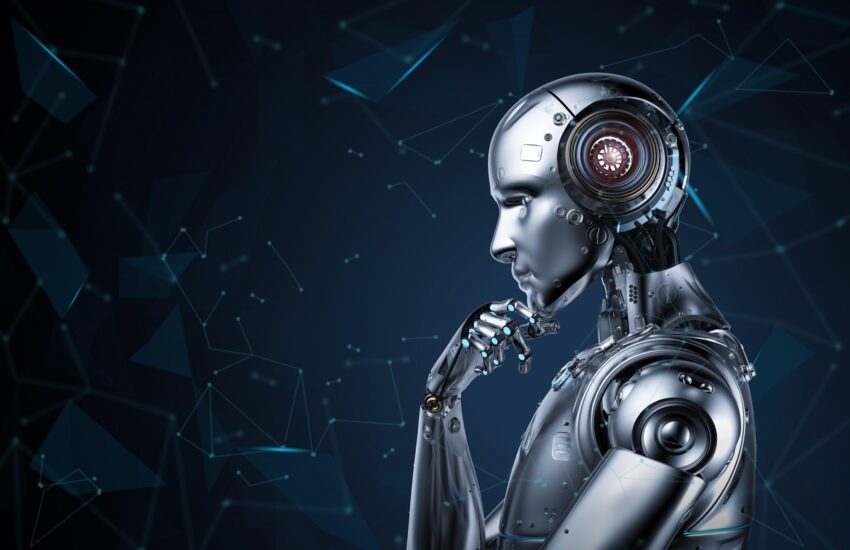Artificial Intelligence (AI) is transforming every industry and facet of life, from healthcare to finance, education to entertainment. By 2025, AI will have evolved significantly, offering more advanced applications, improving business processes, and enhancing human lives. As technology continues to advance at an exponential rate, here’s how AI will shape the future in 2025 and beyond.
1. AI-Powered Automation Across Industries
One of the most significant changes AI will bring in 2025 is the rise of automation across nearly all industries. AI-powered tools will handle a broader range of tasks, from customer service to data analysis and even manufacturing.
- Business Automation: AI will enable businesses to automate routine tasks such as invoicing, scheduling, and customer support. Chatbots and AI-driven systems will manage customer interactions more efficiently, providing quicker responses and better customer satisfaction.
- Manufacturing and Logistics: In manufacturing, robots and AI algorithms will take over repetitive tasks, improving efficiency and reducing costs. Smart factories powered by AI will optimize production lines, reduce waste, and ensure precision.
2. AI in Healthcare: Revolutionizing Patient Care
In healthcare, AI will not only improve the efficiency of administrative tasks but also revolutionize the way patients are diagnosed and treated.
- Personalized Medicine: AI algorithms will analyze a patient’s genetic data, lifestyle, and environmental factors to develop highly personalized treatment plans. This level of customization will lead to more effective and targeted therapies.
- AI Diagnostics: AI-powered tools will assist doctors in diagnosing diseases faster and more accurately, using image recognition and predictive analytics to identify conditions such as cancer, heart disease, and neurological disorders early, improving patient outcomes.
3. AI and Ethics: Addressing Concerns
With AI’s increased capabilities, ethical concerns will continue to rise. In 2025, much of the conversation around AI will focus on its ethical implications and the balance between automation and human involvement.
- Bias in AI Systems: One of the biggest challenges is ensuring that AI systems are free from bias, particularly in sectors like hiring, law enforcement, and finance. Developing more ethical AI algorithms will be a top priority.
- AI Governance: Governments and organizations will establish stricter regulations and frameworks to ensure the responsible use of AI, protecting individuals’ privacy, ensuring transparency, and addressing concerns around surveillance and data collection.
4. AI in Education: Personalized Learning
AI’s role in education will also become more prominent by 2025, enabling highly personalized learning experiences.
- AI Tutors and Assistants: AI-powered tutors will provide students with individualized learning plans, allowing them to progress at their own pace. These tutors will help students with specific needs, offering real-time feedback and assistance.
- Data-Driven Insights for Educators: AI will analyze student data to help teachers identify areas where students are struggling. Educators will have better insights to tailor lessons to meet the diverse needs of their students.
5. AI in Finance: Improving Decision-Making and Security
Artificial intelligence will continue to revolutionize the finance industry by improving decision-making, fraud detection, and customer service.
- AI for Risk Assessment: In 2025, AI will be used more widely to assess risk in financial portfolios, giving investors and financial institutions the tools to make better investment decisions and predict market trends.
- Fraud Detection and Security: AI-powered systems will become more adept at detecting fraudulent transactions in real-time, providing an added layer of security for financial institutions and their customers.
6. AI for Creativity: Enhancing Arts and Entertainment
AI is also making its mark in the creative industries, assisting with everything from content creation to music production.
- AI-Generated Art and Music: In 2025, AI will be used to create original pieces of art, music, and literature. While some may view this as a challenge to human creativity, others see it as a tool to enhance artistic expression.
- AI for Personalization: Streaming services, such as Netflix and Spotify, will use AI to curate content tailored to individual tastes and preferences, improving the user experience by offering highly personalized recommendations.
7. AI in Smart Cities and Infrastructure
By 2025, AI will be an integral part of the development of smart cities, making urban environments more efficient, sustainable, and livable.
- AI in Transportation: Autonomous vehicles powered by AI will transform the transportation sector, reducing traffic congestion and accidents while offering environmentally friendly alternatives to traditional transportation.
- Smart Infrastructure: AI will manage everything from traffic lights to waste management systems, optimizing energy usage, reducing costs, and ensuring the smooth functioning of city services.
8. The Future of Work: AI and Human Collaboration
While AI will undoubtedly take over some jobs, its role in the workforce will also be collaborative. AI will act as an assistant to human workers, empowering them to make better decisions and work more efficiently.
- AI-Augmented Jobs: In 2025, we will see more human-AI collaboration, where AI systems enhance human decision-making in areas such as healthcare, legal services, and customer service.
- Workforce Transformation: The workforce will continue to evolve, with more emphasis on skills that complement AI, such as creativity, emotional intelligence, and complex problem-solving. Workers will need to adapt and learn to collaborate with AI systems to stay competitive in the job market.
Conclusion
The future of AI in 2025 is incredibly promising, with advancements that will enhance industries, improve quality of life, and create new opportunities. However, as AI continues to evolve, it’s crucial to address the ethical implications and ensure that AI is developed and used responsibly. With the right balance of innovation and regulation, AI will undoubtedly shape a smarter, more efficient, and more personalized future for all.

